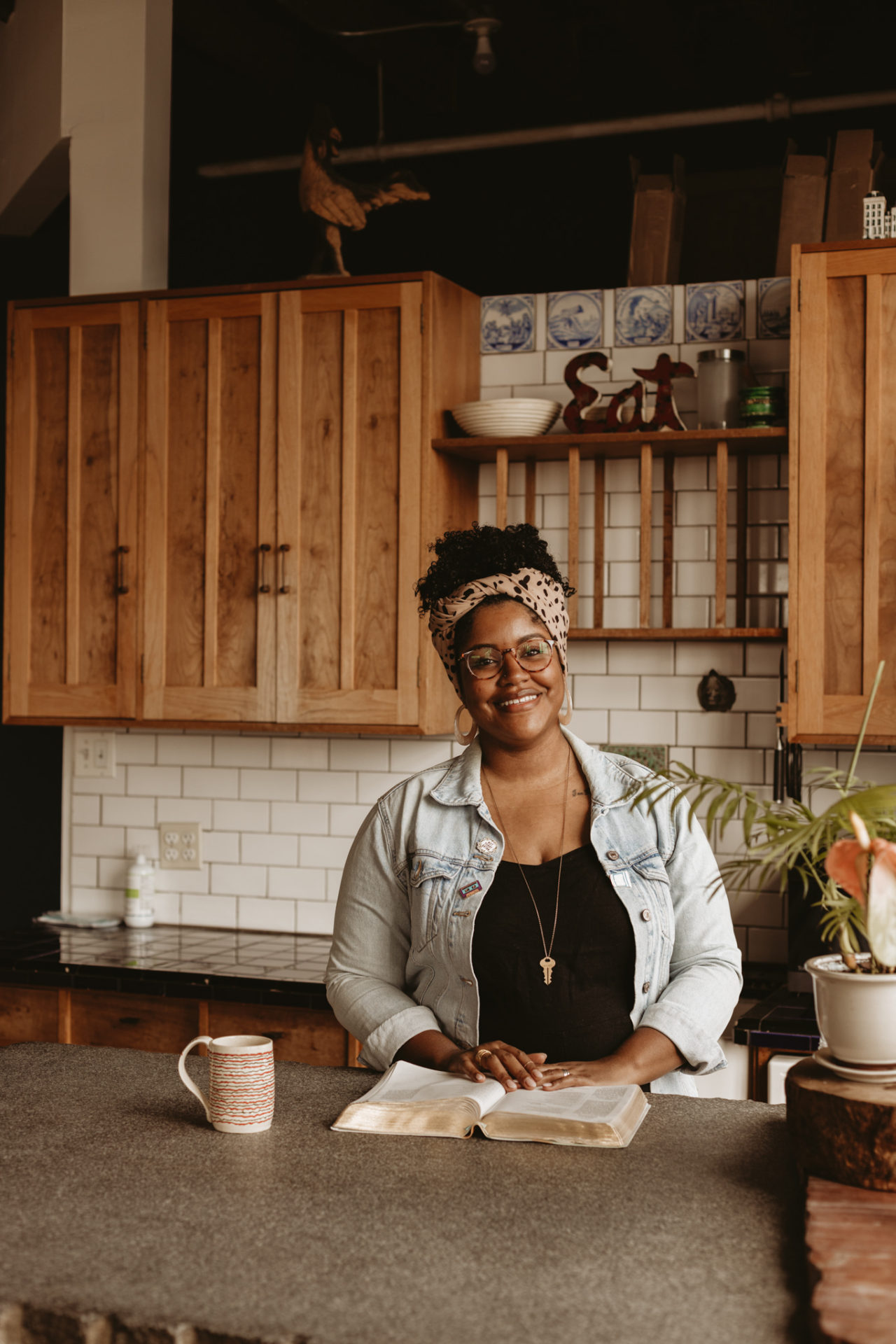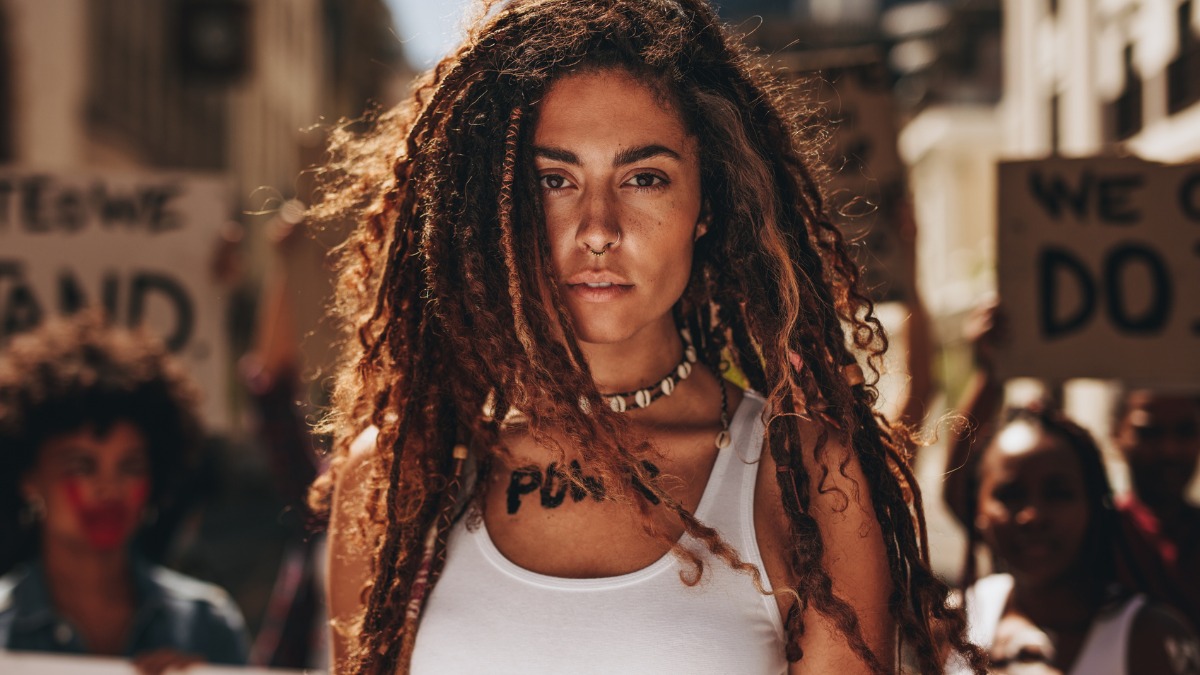What You Can Do About Social Injustice

Written by Pricelis Perreaux-Dominguez
Injustice can feel like such a massive undertaking to consider and address but, when we have the perspective that this issue is too big to deal with, we may end up not doing anything at all. There are ways to do small things that help when it comes to addressing and dismantling social injustice.
Contrary to popular belief, the work of justice goes beyond thinking in terms of race. It is incredibly important to understand that so much injustice occurs due to race, but that’s not always a factor. When we limit injustice to only race-related issues, what do we label the other issues that dehumanize people throughout the world?
Injustice is defined as an unjust act or occurrence and lack of fairness. I would go as far as to say “fairness” is a nicer word to use to describe what injustice actually is: the lack of dignity someone receives or experiences.


When considering ways to address injustice, we should think of four important questions:
- What are examples of injustice?
- Who experiences injustice?
- What is already being done about it?
- What can I do about it?
Firstly, there is a vast amount of examples of injustice that occurs in different circumstances and situations, but some common types of injustice are lack of housing, financial disparities, school zoning, educational inequalities like access to college, access to healthy food (i.e., food deserts), police brutality, human trafficking, church abuse, gun violence, abortion, access to healthcare and insurance and immigration rights. Listing types of injustice could truly go on for days, and that’s a heartbreaking truth. Hopefully, reading this list will help motivate us to take action in some way.
Who experiences injustice?
Mainly people who belong to marginalized communities experience injustice. What I mean by that is there are certain people who are privileged whereas others are oppressed. Men are more privileged than women and people who identify themselves in other gender categories. In terms of race, the most privileged group is white people whereas BIPOC people experience oppression. Socioeconomic class often causes food disparities; the upper class and affluent neighborhoods have access to fresh produce and more affordable healthy food options whereas people who live in low-income neighborhoods only have access to food deserts. A food desert is usually located in a low-income (usually urban) area where a significant number of people live farther than a mile away from the nearest grocery store, and if they do have a close one they likely have very limited healthy food options. Injustice can happen to anyone anywhere and what is also true is that there are structures and systems of oppression in society, such white supremacy, patriarchy, and capitalism, that make some groups of people more likely to experience injustice often.
What is already being done about it?
So much! There are so many organizations and churches that provide services, referrals, support, advocacy and resources for people experiencing injustice. There are corporations that are being responsible with their money and using it for good. There are DEI (diversity, equity and inclusion) initiatives that are being launched at most companies. There are politicians, social workers, lawyers, doctors, advocates, activists, teachers, writers, creators, pastors and so many other people doing intentional work to restore social systems that have been set in place and don’t provide justice for all.
So, what can you do about it? It looks like plenty of people are doing plenty of things to help marginalized groups. And that is true, but no one is you. The block you live on needs you. The floor you live on in your apartment needs you. Your neighbor needs you. Your neighborhood needs you. Your local church needs you. Your local school needs you. Your local shelter needs you. You are needed on the ground. There are people who you’re specifically called to serve around that may or may not be getting support from outside agencies, organizations or churches.
When you look around you, you’ll see that there is so much you can do on any given day.
So where should you start? Well, consider these questions as invitations:
- Do you have a gift you can use as you volunteer at a local organization near where you live?
- Can you begin to donate a certain amount of money from each paycheck to an organization in need of funds?
- Can you provide a water bottle and a short prayer to someone in the street that is in need?
- Can you march at the next rally for the rights of a marginalized group of people?
- Can you use your privilege to help someone that needs access to resources they don’t have access to?
- What can you do today – and right now – to help another person not just experience fairness but dignity?
The first three questions are important to consider when trying to figure out what to do because, for too long throughout history, people have been trying to help in areas that don’t need help. So, when thinking about what to do, consider what injustice is occurring near you, who is experiencing them, what is already being done about them, and what you can do.
Once you find the answers to these questions, hopefully you’ll feel encouraged to know that you actually can do something and that your help is part of the bigger picture of fighting for social justice for all.
Related Resources
Why Indigenous Peoples’ Day Matters & Ways to Honor This Day
While most kids were happy to celebrate Columbus Day because it meant a three-day weekend, I grew up in a home with a much more indignant perspective on this federal holiday. My Mexican American father had an affinity for Native American history and taught his...
Supporting Black Business Month at Your Local Target
Everyone loves Target. Everyone knows the pure joy of stepping into Target and the challenge it is to leave with ONLY the items on your list. Well since August is Black Business Month, I thought it would be cool to walk you through how you can support Black...
It’s Time to Talk About Ableism
Oftentimes when we get into a conversation with an individual about advocacy issues, it can go one of two ways. It can actually be a productive conversation where both parties are patient, respective, and are truly listening to one another. This is what we hope to...

I heard about Iridescent women,from my Bible app and I am so happy to see it and read everything here!! I want to help and be a part of change….I will be a part of change!! Thank you